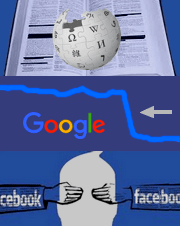Liczba wyświetleń: 536
At the end of last week, trilateral negotiations between Ukraine, Russia and the EU took place, during which the parties again attempted to discuss the transit of Russian gas to Europe.
The initial positions of the parties assumed a difficult negotiation process and the practical impossibility of reaching any compromise. Representatives of Ukraine and the European Commission arrived with the desire to conclude a contract for 10 years, fixing the volumes of transit in it, which provide attractive investment for investors in the modernization of the Ukrainian gas transport system. Russia declared its readiness to conclude a contract if it is economically feasible for itself.
The EU’s position here is understandable and transparent. Europe needs guarantees of stable supplies of Russian gas and guarantees for the existence of the Ukrainian pipeline (with a purpose of its subsequent privatization). For this, it is enough to enshrine in the contract obligations for pumping 60 billion cubic meters of gas per year.
The Ukrainian side arrived with an ultimatum: if a contract is not concluded on Ukrainian terms, Kiev will insist on compensation from Gazprom in the amount of $ 11-14 billion, as well as compensation for the difference in the cost of gas purchased by Ukraine in Europe and the cost of gas that Gazprom “should have to deliver under the contract after the previous arbitration has changed the price. Kiev insisted on a transit volume of 90 billion cubic meters, which is slightly more than in 2018 (86.8 billion cubic meters). But when Russia starts using the Turkish Stream and Nord Stream 2, this volume is even theoretically impossible.
The position of the Russian Gazprom was to ensure stable gas supplies to Europe, regardless of the changing political situation in Ukraine. At the same time, Russia is not satisfied with the long-term contract, as it will not allow fully utilizing the capacities of new gas pipelines. It turns out that Moscow is interested only in temporary transit, until the Turkish and Nordic streams reach full capacity. In addition, Moscow called the settlement of legal disputes and the conclusion of a package agreement, including, in addition to the transit contract, an agreement for the purchase of Russian gas by Kiev (though with a 20% discount).
As can be seen from the description, the positions of the parties are radically opposite. At the same time, it is extremely difficult to achieve any results in 40 minutes. Nevertheless, the Minister of Energy of Ukraine Aleksey Orzhel and his Russian counterpart, Alexander Novak, called the negotiations constructive. The parties agreed that the future gas contract between Ukraine and Russia will be based on EU legislation, said Marosh Shefchovich, Vice President of the European Commission for the Energy Union. And this means that Ukraine is obliged to put up its transit capacity for auction. Russian Gazprom will be able to buy them in the required volumes, which will allow deliveries to Europe without concluding a contract.
There is one more party that was not present at the talks. This is the USA. And their interests contradict everyone else. Washington is interested in cutting off Russian gas supplies and replacing it with its LNG. To do this, it would be good not only to disrupt transit contracts, but also completely destroy the Ukrainian pipe. Ukraine has already begun purchasing LNG from US suppliers, Port Arthur LNG and Cheniere Marketing, and Washington is unlikely to want to stop receiving revenue from them.
The next round of negotiations is scheduled for late October. And one gets the feeling that no special shifts are expected in them. Europe needs guarantees of sustainable transit, Russia needs the same guarantees and the loading of new gas pipelines. And Ukraine with this position remains a looser. Its transit capacities can be booked without a contract.
But in the event of the termination of transit, the country can expect very serious consequences in the form of a loss of three to four percent of GDP. In addition, Kiev will not be able to purchase gas by reverse, since there will simply be no excess gas (at least cheap) in Europe.
Authorship: Vitaliy Timoschuk
Source: WolneMedia.net










